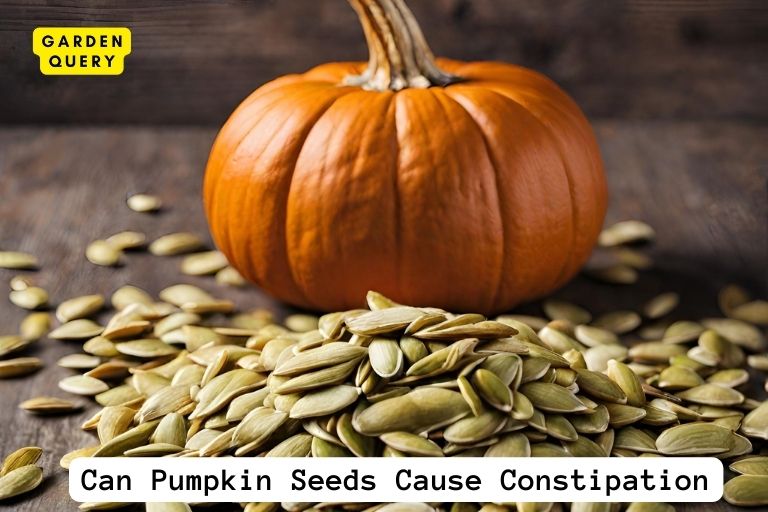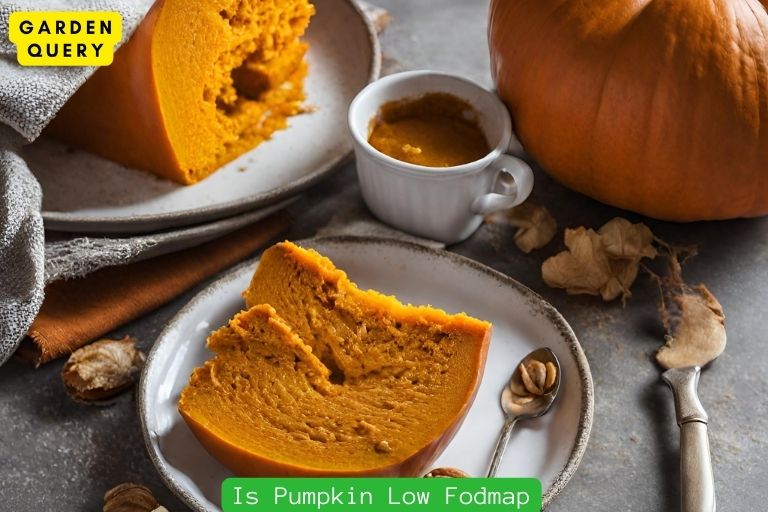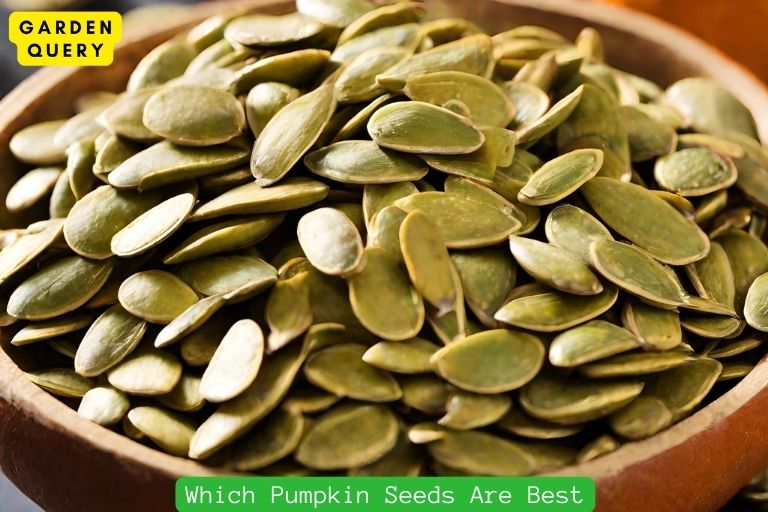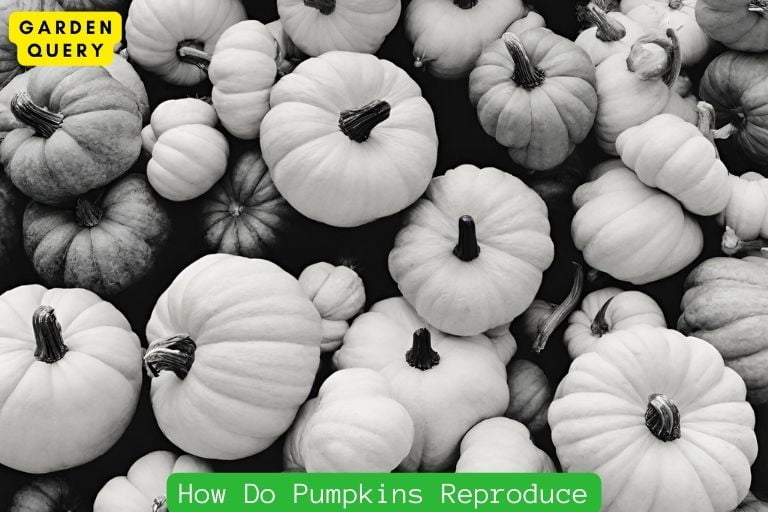Can Pumpkin Seeds Cause Constipation?
No, pumpkin seeds are generally beneficial for digestion and unlikely to cause constipation due to their rich fiber content.
Pumpkin seeds are a good source of dietary fiber, which aids in promoting healthy digestion and preventing constipation. The fiber content in pumpkin seeds adds bulk to the stool, facilitating its movement through the digestive tract and promoting regular bowel movements. Additionally, pumpkin seeds contain magnesium, which further contributes to bowel regularity and can alleviate constipation.
It’s crucial to consume pumpkin seeds in moderation, as excessive intake might lead to undesired effects, but when included as part of a balanced diet, they are a valuable addition to promoting gastrointestinal health. Overall, pumpkin seeds are more likely to contribute to digestive well-being than cause constipation.
Key Takeaway
Overview of constipation
Constipation is a common gastrointestinal problem that affects people of all ages. It is characterized by infrequent bowel movements or difficulty in passing stools. While occasional constipation may not be a cause for concern, chronic constipation can lead to discomfort and other health issues. Common causes of constipation include a low-fiber diet, inadequate fluid intake, lack of physical activity, certain medications, and underlying medical conditions.

The potential role of pumpkin seeds in constipation
Pumpkin seeds, also known as pepitas, are a nutritious snack that is rich in essential nutrients like fiber, healthy fats, vitamins, and minerals. They have been associated with numerous health benefits, including improved heart health, enhanced digestion, and reduced inflammation. However, there is limited scientific evidence supporting the notion that pumpkin seeds can cause constipation.
While pumpkin seeds are a good source of fiber, which is known to promote regular bowel movements, they also contain healthy fats that can help lubricate the intestines and facilitate stool movement. In fact, incorporating fiber-rich foods like pumpkin seeds into your diet can actually help prevent constipation and promote healthy digestion. It is important to note that individual experiences with food can vary, and some people may have sensitivities or intolerances to certain foods, including pumpkin seeds, which could potentially contribute to constipation.
If you suspect that pumpkin seeds are causing constipation or any digestive discomfort, it is advisable to consult with a healthcare professional. They can help determine the underlying cause of your symptoms and provide appropriate advice or treatment.
To promote healthy digestion and prevent constipation, it is recommended to consume a well-balanced diet that includes a variety of fiber-rich foods, such as fruits, vegetables, whole grains, and legumes. Additionally, staying hydrated, exercising regularly, and managing stress levels can also contribute to optimal digestion.
In conclusion, there is insufficient scientific evidence to suggest that pumpkin seeds cause constipation. On the contrary, they can be a beneficial addition to a balanced diet as they provide essential nutrients and promote healthy digestion. It is always important to listen to your body and consult with a healthcare professional if you have any concerns or experience persistent digestive issues.
Nutritional Content of Pumpkin Seeds
Nutritional composition of pumpkin seeds
Pumpkin seeds are not only delicious, but they are also packed with nutrients that are beneficial for overall health. They are a good source of protein, healthy fats, vitamins, minerals, and antioxidants. These small, flat seeds are rich in magnesium, zinc, iron, potassium, and vitamin E. They also contain significant amounts of fiber, which is essential for maintaining optimal digestion and preventing constipation.
Fiber content in pumpkin seeds and its impact on digestion
Fiber plays a crucial role in maintaining a healthy digestive system. It adds bulk to the stool, promotes regular bowel movements, and prevents constipation. Pumpkin seeds are a good source of dietary fiber, with approximately 1.7 grams of fiber per ounce. Consuming an adequate amount of fiber-rich foods, such as pumpkin seeds, can help ensure smooth and regular bowel movements.
Furthermore, the fiber in pumpkin seeds acts as a prebiotic, promoting the growth of beneficial gut bacteria. These bacteria play a key role in maintaining a healthy gut environment and supporting proper digestion. A healthy gut flora can prevent digestive issues, such as constipation, by promoting the breakdown of food and absorption of nutrients.
It is important to note that while pumpkin seeds are a good source of fiber, they should be consumed as part of a balanced diet that includes a variety of other fiber-rich foods. This ensures that you are getting a sufficient amount of fiber from different sources, which can further aid digestion and prevent constipation.
In summary, pumpkin seeds are a nutritious snack that can be beneficial for digestion. They are packed with fiber, which adds bulk to the stool, promotes regular bowel movements, and prevents constipation. Additionally, the fiber in pumpkin seeds acts as a prebiotic, supporting the growth of beneficial gut bacteria. However, it is important to consume pumpkin seeds as part of a well-rounded diet that includes a variety of fiber-rich foods to ensure optimal digestive health.
Potential Benefits of Pumpkin Seeds for Digestion
Pumpkin seeds, also known as pepitas, are a nutritious snack that is widely enjoyed for its crunchy texture and delicious flavor. In addition to being a tasty treat, pumpkin seeds have also been associated with various health benefits, including potential advantages for digestion.
Role of fiber in promoting regular bowel movements
One of the main reasons why pumpkin seeds may be beneficial for digestion is their high fiber content. Fiber plays a crucial role in promoting regular bowel movements and preventing constipation. It adds bulk to the stool, making it easier to pass through the digestive system. This can help to alleviate constipation and maintain overall digestive health.
Consuming an adequate amount of dietary fiber is important for reaching and maintaining optimal bowel regularity. Pumpkin seeds are an excellent source of fiber, with about 5 grams of fiber per 1-ounce serving. Adding pumpkin seeds to your diet can therefore contribute to your daily fiber intake and support healthy digestion.
Other nutrients in pumpkin seeds that may aid digestion
Apart from fiber, pumpkin seeds also contain other nutrients that may aid digestion. These include magnesium, zinc, and antioxidants. Magnesium plays a vital role in muscle relaxation, including the muscles of the digestive tract, which can help prevent constipation. Zinc has been shown to support a healthy immune system, which includes the gut microbiome, a crucial component of digestion.
Furthermore, antioxidants found in pumpkin seeds, such as vitamin E and carotenoids, may help reduce inflammation in the gastrointestinal tract. Inflammation can impede the proper function of the digestive system and contribute to digestive discomfort. By including pumpkin seeds in your diet, you may help support the overall health of your digestive system.
While pumpkin seeds show promise in promoting healthy digestion, it’s important to remember that individual experiences may vary. Some people may find that consuming a large amount of fiber-rich foods, including pumpkin seeds, can cause temporary digestive symptoms like bloating or gas. It’s always best to listen to your body and adjust your intake accordingly.
In conclusion, the potential benefits of pumpkin seeds for digestion are attributed to their high fiber content and additional nutrients like magnesium, zinc, and antioxidants. Including pumpkin seeds in your diet can contribute to regular bowel movements, support a healthy gut microbiome, and reduce inflammation in the digestive tract. However, it’s essential to remember that everyone’s digestive system is unique, and what works for one person may not work the same for another. If you have any concerns or specific digestive issues, it’s advisable to consult with a healthcare professional.
Can Pumpkin Seeds Cause Constipation?
Exploring the claim that pumpkin seeds can cause constipation
Constipation is a common digestive issue that affects millions of people worldwide. It can be caused by various factors, including a low-fiber diet, inadequate fluid intake, lack of physical activity, and certain medications. In recent years, there have been claims that consuming pumpkin seeds can also contribute to constipation. However, is there any truth to this claim? Let’s explore the facts.
Pumpkin seeds are packed with nutrients and are known for their health benefits. They are an excellent source of fiber, which is essential for maintaining a healthy digestive system. Fiber helps regulate bowel movements and prevents constipation. In fact, a single serving of pumpkin seeds contains approximately 5 grams of fiber, which is about 20% of the recommended daily intake for adults.
While fiber is generally beneficial for preventing constipation, it’s important to note that everyone’s digestive system is unique. Some individuals may have a sensitive digestive system that may not respond well to certain foods, including pumpkin seeds. In rare cases, consuming a large amount of pumpkin seeds in a short period could potentially lead to temporary constipation. However, this is more likely to occur if pumpkin seeds are eaten in excess without a balanced intake of other fluids and foods.
Factors to consider when consuming pumpkin seeds
If you enjoy eating pumpkin seeds and want to incorporate them into your diet without any digestive issues, there are a few factors to consider:
- Portion size: Like any food, moderation is key. Consuming pumpkin seeds in reasonable portions as part of a well-balanced diet is unlikely to cause constipation. It’s recommended to stick to the recommended serving size, which is typically around 1 ounce (28 grams) of pumpkin seeds.
- Hydration: Drinking an adequate amount of water is crucial for maintaining healthy bowel movements. Ensure you are staying hydrated throughout the day and consuming enough fluids alongside your pumpkin seed intake.
- Pair with other high-fiber foods: To prevent any potential constipation, it may help to include other high-fiber foods in your diet along with pumpkin seeds. This can include fruits, vegetables, whole grains, and legumes.
- Listen to your body: Pay attention to how your body responds to pumpkin seeds. If you notice any digestive discomfort or changes in bowel movements, it’s best to consult a healthcare professional to determine the underlying cause.
In conclusion, while there have been claims that pumpkin seeds can cause constipation, this is not widely supported by scientific evidence. In fact, pumpkin seeds are generally considered a healthy addition to a balanced diet and can provide numerous nutritional benefits. However, as with any food, it’s important to consume them in moderation and be mindful of your body’s individual response. If you experience any digestive issues, it’s recommended to seek medical advice to understand the underlying cause.
Tips for Incorporating Pumpkin Seeds Into a Constipation-Friendly Diet
When it comes to managing constipation, diet plays a crucial role. Many people wonder if pumpkin seeds, a popular snack and ingredient, can actually cause constipation. Let’s explore this topic and provide some tips for incorporating pumpkin seeds into a constipation-friendly diet.
Incorporating pumpkin seeds into a high-fiber diet
Pumpkin seeds are a good source of fiber, which can help promote healthy digestion and prevent constipation. However, it’s important to consume them as part of a balanced and high-fiber diet. Here are some tips for incorporating pumpkin seeds into your daily meals:
- Add them to your breakfast: Sprinkle pumpkin seeds on top of your morning oatmeal, yogurt, or cereal. This will not only add a delicious crunch but also provide an extra boost of fiber to kickstart your day.
- Mix them into salads: Toss a handful of pumpkin seeds into your salads for some added texture and nutty flavor. It’s a simple way to increase your fiber intake while enjoying a nutritious meal.
- Bake them into bread or muffins: Get creative in the kitchen by incorporating pumpkin seeds into homemade bread or muffin recipes. This will not only add a delightful crunch but also contribute to your overall fiber consumption.
- Create a healthy trail mix: Combine pumpkin seeds with other high-fiber ingredients like nuts, dried fruits, and whole grain cereals to create a satisfying and nutritious snack. This can be a great option for those who are often on the go.
Other dietary considerations for managing constipation
While pumpkin seeds can be a valuable addition to a constipation-friendly diet, there are other dietary considerations to keep in mind:
- Stay well-hydrated: Adequate hydration is crucial for maintaining regular bowel movements. Make sure to drink plenty of water throughout the day. Herbal teas and natural fruit juices can also contribute to your fluid intake.
- Increase your fiber intake gradually: While fiber is beneficial for promoting regularity, it’s important to gradually increase your fiber intake to prevent bloating and discomfort. Start by adding small amounts of fiber-rich foods like pumpkin seeds and gradually increase over time.
- Include a variety of fruits and vegetables: Fresh fruits and vegetables are excellent sources of dietary fiber. Aim to consume a wide range of colorful produce to ensure you’re getting a good mix of soluble and insoluble fiber.
- Exercise regularly: Physical activity can help stimulate bowel movements and improve overall digestion. Incorporate regular exercise into your daily routine, whether it’s going for a walk, practicing yoga, or participating in your favorite sport.
Remember, if you have chronic or severe constipation, it’s important to consult with a healthcare professional for personalized advice and potential underlying causes. While pumpkin seeds can be a beneficial addition to a constipation-friendly diet, they may not be suitable for everyone.
Incorporating pumpkin seeds into your diet can be a tasty and nutritious way to support healthy digestion. By combining them with other high-fiber foods and adopting a well-rounded approach to managing constipation, you can improve your overall digestive health and well-being.
- Best Therapists In Dallas - February 1, 2024
- Holly Willoughby Husband: Holly Willoughby’s Love Story - January 30, 2024
- Holly Willoughby Dress: 5 Style Secrets and 7 Must-Know Career Milestones - January 30, 2024





